CFIA targeting spring 2024 for draft of new potato wart response plan
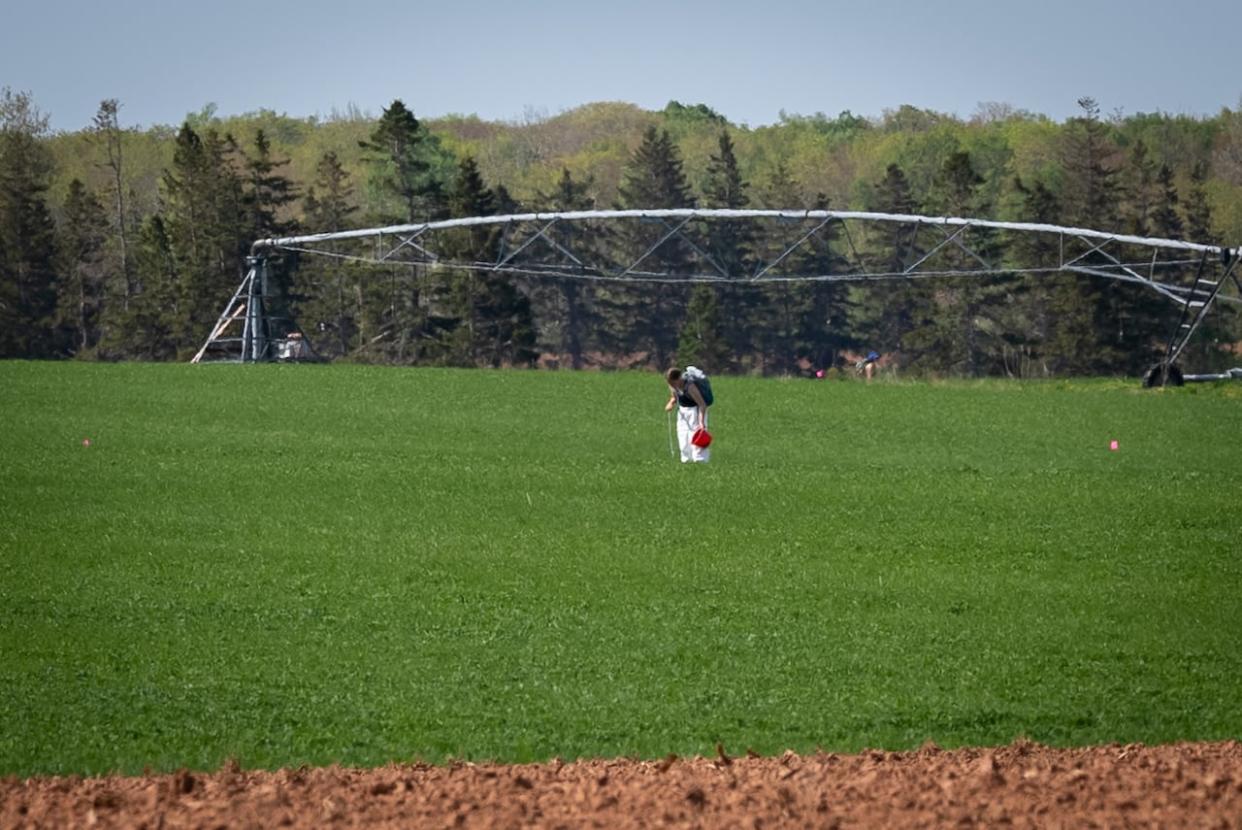
The Canadian Food Inspection Agency is targeting the spring of 2024 to have a draft of the new national potato wart response plan ready for the public to see.
The agency is looking for feedback on three new risk-management documents connected to potato wart, aimed at reducing the chance it will crop up again and devastate the industry.
Detections of the fungus in late 2021 resulted in the Canadian government banning fresh P.E.I. table potatoes from being sold into the United States market for four months.
Hundreds of millions of kilograms of Island potatoes had to be destroyed over the winter that followed, and there are still restrictions on seed potatoes being sold out of province.
In a statement posted in late December, the CFIA said the feedback will help it draft an updated plan to replace the current Potato Wart Domestic Long Term Management Plan.
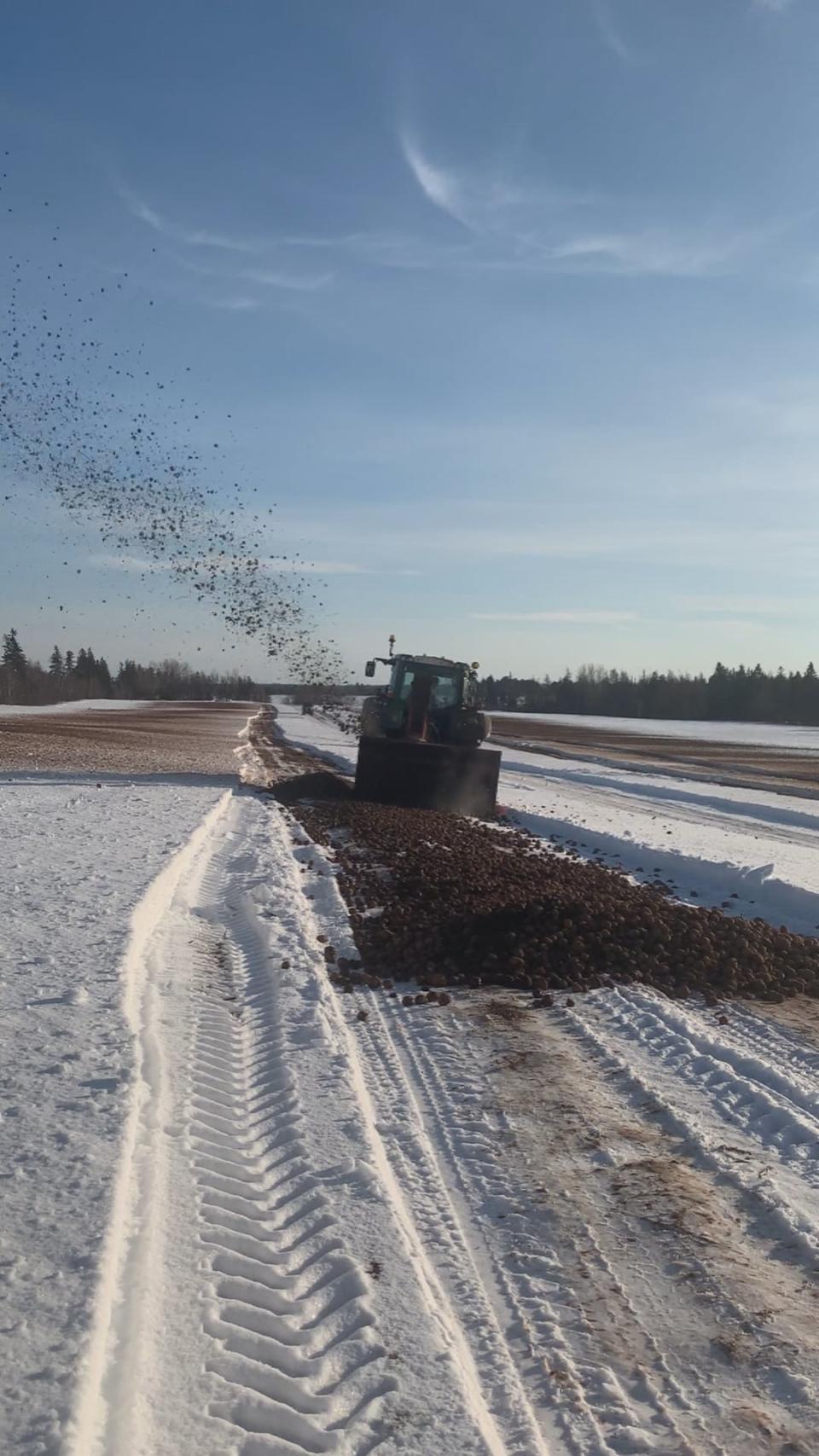
Hundreds of millions of kilograms of Island potatoes had to be destroyed over the winter of 2022. (Submitted by Sheilagh Annear)
The three documents focus on biosecurity, seed potato production, and what to do with fields where potato wart has been detected.
"The one for seed potato production is: 'Should seed potato production be permitted on fields restricted for potato wart in Prince Edward Island?'" said Patricia McAllister, acting director of potato program response for CFIA.
"The next one is really looking at field categorization, and should we be reconsidering how we are categorizing fields when they are associated with potato wart detection in a field?" McAllister said.
"Then the third one is really looking at how we have been managing potato wart more broadly."
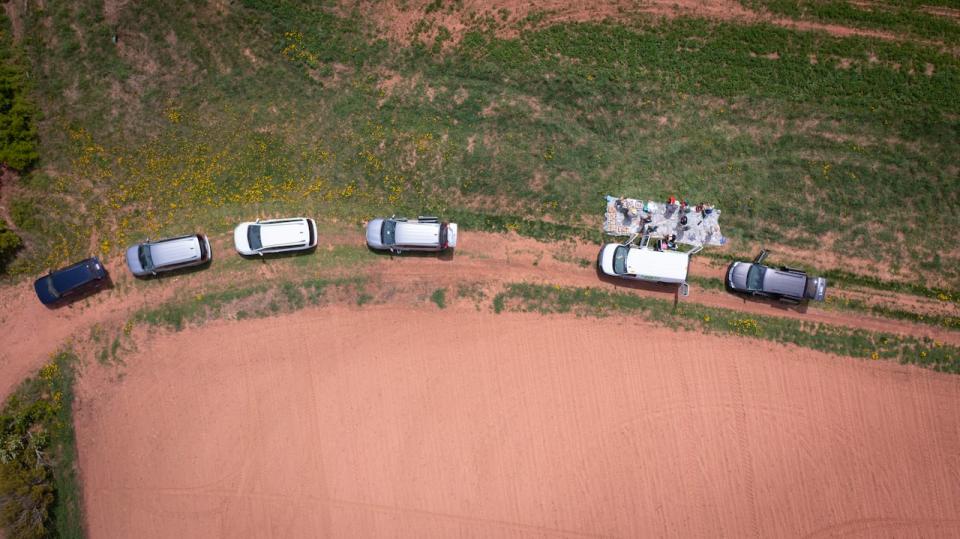
CFIA crews gathering soil samples as part of the investigation into potato wart. (Shane Hennessey/CBC)
Seed potato export markets changing
McAllister said there is also work being done to allow more seed potatoes to be exported from the Island.
"The United States has prohibited the import of P.E.I. seed potatoes, so that export market is currently not available to P.E.I. producers," she said.
"But there are other countries where we are able to meet export requirements, and seed potatoes are leaving Prince Edward Island to some of those markets for this crop season."
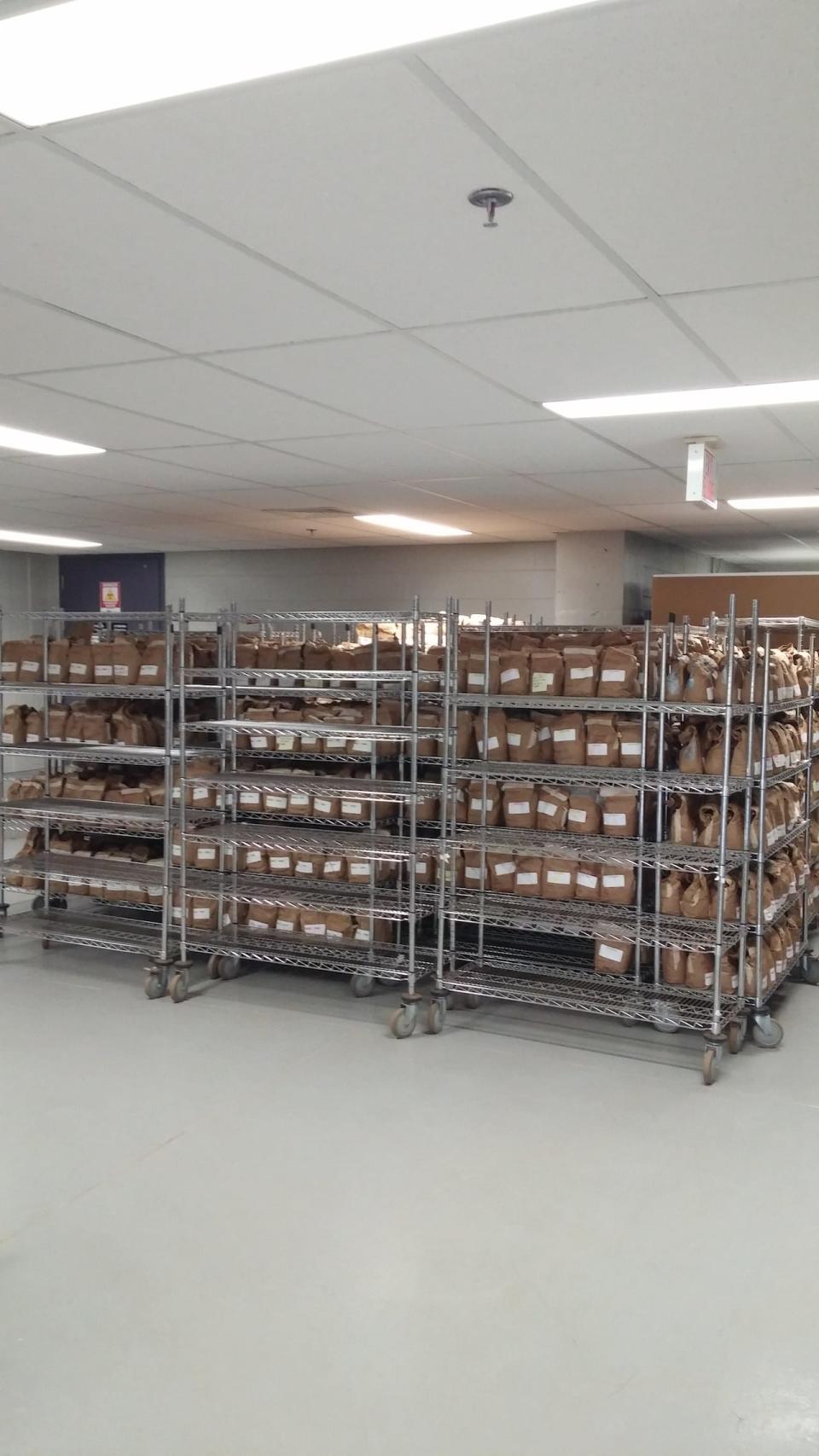
These are soil samples at the CFIA lab in Charlottetown. (Canadian Food Inspection Agency)
She added that two Island farms have met conditions that let them move seed potatoes off Island, "but our work right now is to allow additional seed potato farms that meet specific requirements to move product and we're working with the P.E.I. Potato Board on that right now."
McAllister said the goal is to have the draft of the new national response plan ready by early spring for public comment, and finalized by summer. Then the agency would work with the P.E.I. industry on implementation timelines.
"For the 2023 crop, what's in storage right now to move in the spring, the requirements are going to stay the same," she said.
"For the next crop year, that's when we're hoping we will have had some additional discussions and [finalized] those criteria for off-Island movement of seed that we hope will allow additional producers to move their product."
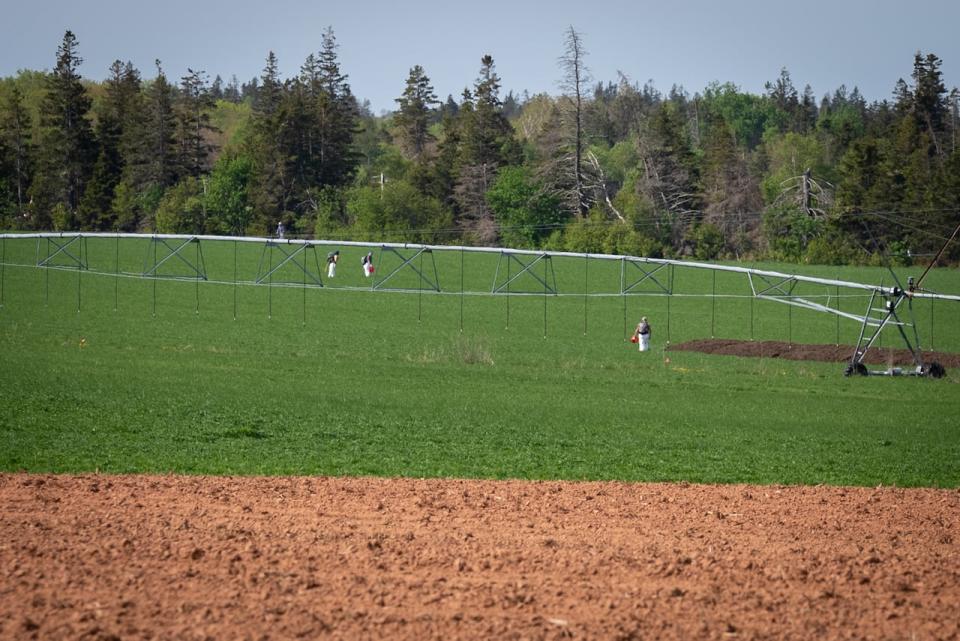
CFIA announced the P.E.I. results from the national potato wart survey in December, with no new detections reported. (Shane Hennessey/CBC)
McAllister said the agency is hoping to have the national potato wart survey complete by the end of March.
CFIA has already announced the results of the survey from Prince Edward Island, though, saying in December that the province had no new detections of the fungus.
"I think we all appreciate the anxiety that comes with waiting for results, whether it's a medical test or anything else," McAllister said. "We knew that this was creating significant stress for the potato producers awaiting those results, and our laboratory prioritized completion of those results as quickly as possible."
'Safest potatoes'
The general manager of the P.E.I. Potato Board, Greg Donald, said people in the industry both on the Island and nationally have been working with CFIA on the new plan.
"What we've done in the past, and also will be critical in the future, is to have really good records, traceability, and biosecurity from a disease point of view," Donald said.
"Having said all that, we've always felt that way, but it's going to ensure that P.E.I. not only has the best quality, but we also have the safest potatoes from a disease point of view."

Greg Donald of the P.E.I. Potato Board says that by the end of this process, the province will be recognized as having the safest potatoes anywhere 'from a disease point of view.' (Shane Hennessey/CBC)
"We're going to be probably the most trusted place to buy seed — or any potatoes, for that matter — because of all the testing and surveillance and work that's been done here. I don't know of anywhere that's probably been sampled and tested as much as P.E.I."
CFIA has also launched a new online tool where properties can be checked for any restrictions in place connected to potato wart before farmers lease or buy them.
Donald said the board is also looking forward to new regulations from the P.E.I. government connected to the Act to Amend the Plant Health Act, which passed in November 2022.
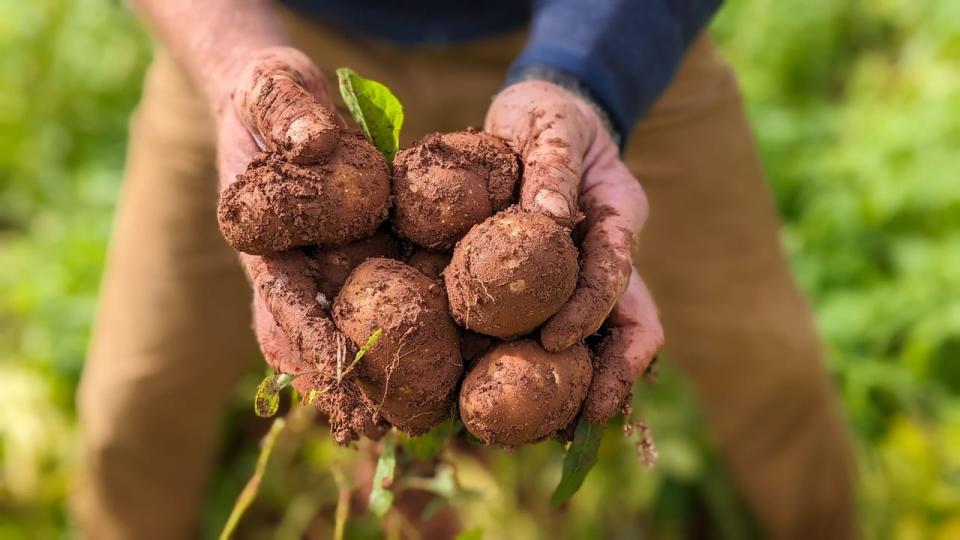
Soil sticks to some potatoes freshly dug out of a P.E.I. field. (Shane Hennessey/CBC)
They give the agriculture minister the authority to prohibit or restrict the planting of certain crops within an area of a field where a regulated disease has been detected, for up to 20 years.
"The desire of the industry is to formalize — it's already the case but to formalize — where there's an infected area of the field, that there'd be legislation in place to ensure that potatoes will not be produced in that area," Donald said.


